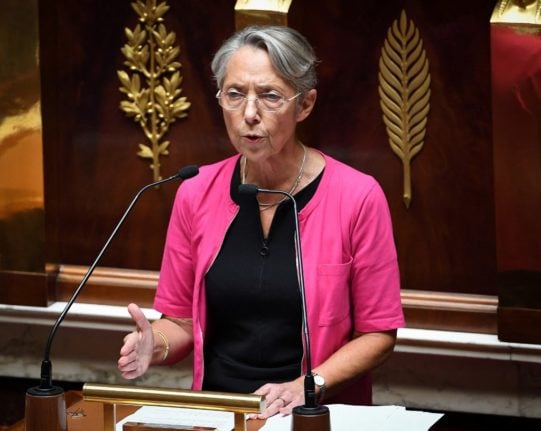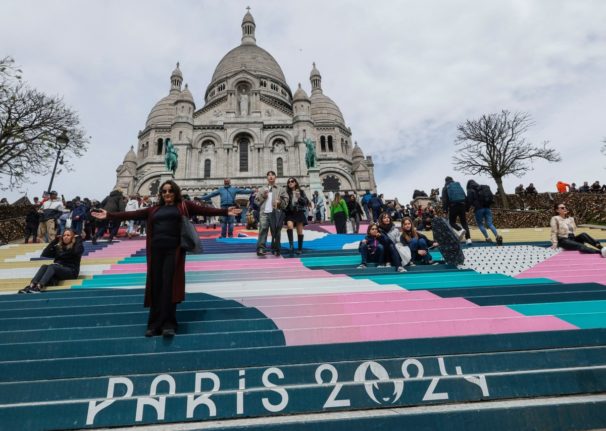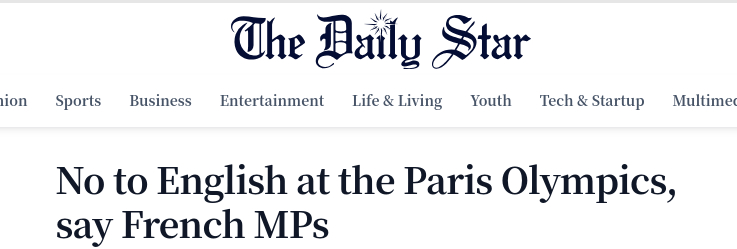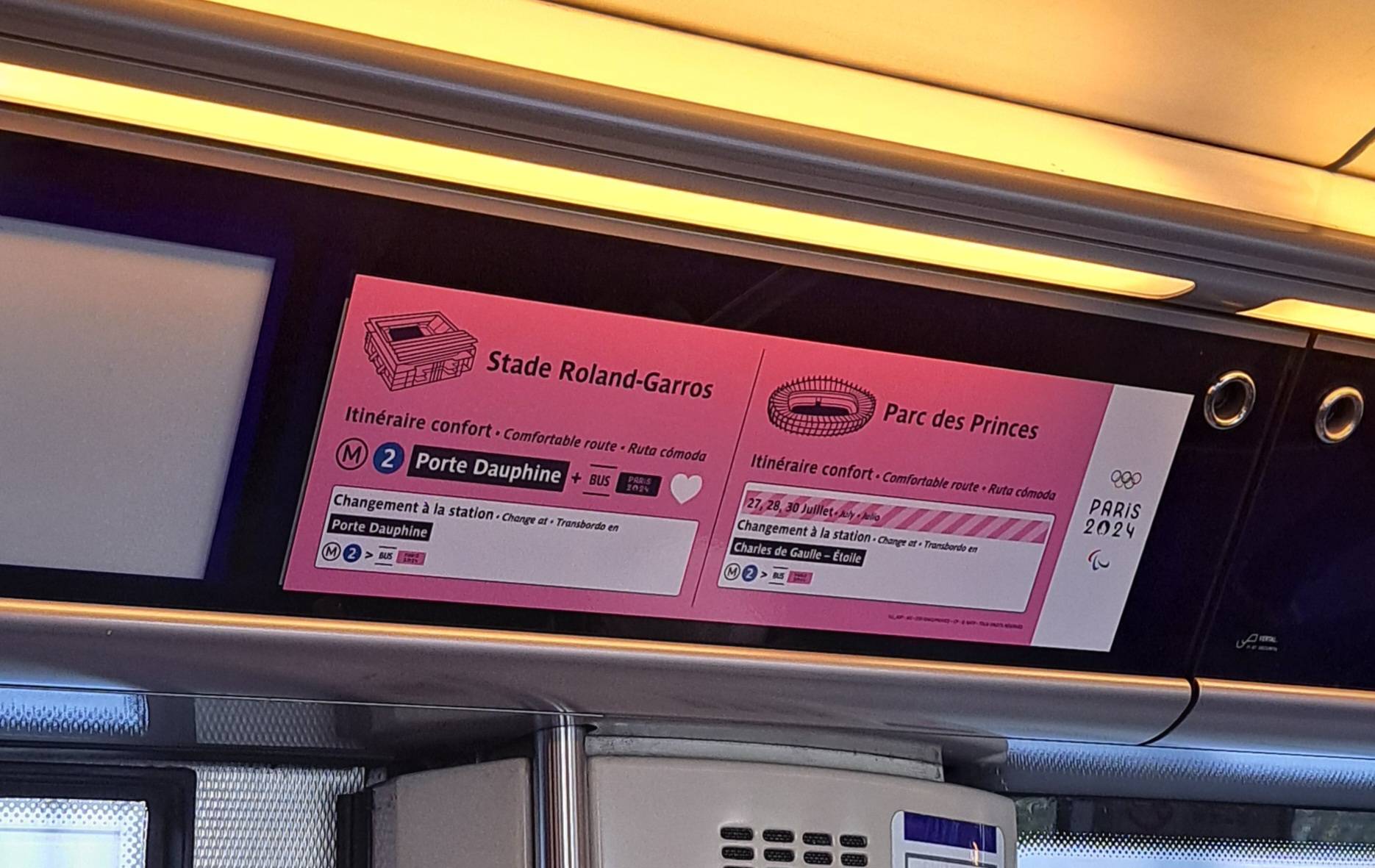After congratulating newly elected deputies, Borne called on opposition parties to work with the governing party to reform, the French having chosen during the last legislative elections not to give them an absolute majority.
“The French are asking us to take our responsibilities. We will do it. Together we will respond to the challenge of abstention … the demand for action … we will meet the requirement of responsibility,” she said.
“They urge us to do things differently, a sustained dialogue, the active search for compromise. The context obliges us, the war in Ukraine reminds us how fragile peace is”, she continued, also referring to “the ecological emergency which is becoming more present every second”.
She added: “The French are asking us to talk more, to talk better, to build together.”
Among the challenges facing the government, Borne spoke of “environmental responsibility” and “improving the public accounts”.
Here are the key points of her speech:
Cost of living
A bill to help French people with the cost of living and improve purchasing power will be the first major piece of government legislation put to the Assembly, on July 18th.
Borne, heckled by a febrile parliament, singled out the abolition of the TV licence, saying it would “save €138 per year for the French. Taxation will be one of our areas of debate, but it can be a subject of compromise.”
Pensions
On pensions, Borne said: “Our social model is a paradox: one of the most generous and one of those where we work the shortest. For the prosperity of our country and the sustainability of our pay-as-you-go system (…) we will have to gradually work a little longer”.
She promise to consult with social partners on pension reform.
Energy
Elisabeth Borne confirms the government’s intention to hold “100 percent of the capital of EDF” – effectively announcing the re-nationalisation of the energy supplier. “We must ensure our sovereignty in the face of the consequences of the war in Ukraine,” she said.
The State already owns about 80 percent of the business.
“This evolution will permit EDF to reinforce its capacities to carry out in the shortest possible time its ambitious and indispensable projects for our future energy” supplies, she added.
Shares in EDF jumped more than five percent higher, having traded down five percent before the prime minister’s speech.
Environment
“As of September, we will launch a vast consultation with a view to an energy-climate orientation law,” Borne said.
The “ecological emergency” is one of the government’s biggest upcoming challenges, she said.
“We will undertake radical transformations in our way of producing, housing, moving, consuming.”
“We will be the first major ecological nation to get out of fossil fuels,” the Prime Minister said, indicating that the government was putting nuclear energy at the heart of its green policy. “It is the guarantee of our energy sovereignty, the preservation of our purchasing power.”
She added that it would also create jobs.
Employment
Borne welcomed France’s improving employment figures, highlighting the success of apprenticeships, training for job seekers and the Un jeune, une Solution scheme. “Our country can get out of the vicious circle of mass unemployment,” she said.
Borne insisted that “full employment and good employment” is “not an illusion, not an unattainable goal” – but is “within our reach”.
Combatting ‘Séparatisme’
The prime minister also prioritised security in her speech, promising that “Separatism and Islamist extremism will be fought.”
As a result, Borne plans to present a bill for the creation of 200 additional gendarmerie brigades throughout the country. She also called for faster court decisions and for victims to be listened to.
Education
Borne promised to improve teacher salaries, as she pledged “priority action” for schools and young people, and also said the government would continue developing the universal service scheme introduced by Emmanuel Macron during his first term in office.
“During our discussions, I saw another common desire emerge: to build the Republic of equal opportunities”, continues Elisabeth Borne. She assures that President Macron wants to “break the inequalities of destiny to allow everyone to choose their future, to trace the paths of emancipation”.
National debt
Borne set out an objective of reducing France’s national debt by 2026, and bringing the deficit below 3% from 2027.
Housing
Borne said the question of housing is a major concern for French people and announced that her government has decided to put a ceiling on rent increases, and will work to build new housing.
Inequality
The prime minister also announced plans to reduce inequality by offering single-parent households with childcare assistance for children up to age 12. Borne also pledged to simplify the student grant system, extend the culture pass from 6ème (age 11-12), and provide 30 minutes of sport for primary school students.
The PM also discussed potential reforms to disability benefits, which are currently partially dependent on spousal earnings.
At the end of a speech that lasted 90 minutes, Borne said that she wanted “to write a new page in the political history” of France. “I pledge never to break the thread of dialogue, to build ambitious compromises. The French have called for responsibility, and we will be there. We all have a part to play, we have everything to succeed. Building together, we will succeed.”





 Please whitelist us to continue reading.
Please whitelist us to continue reading.
Member comments